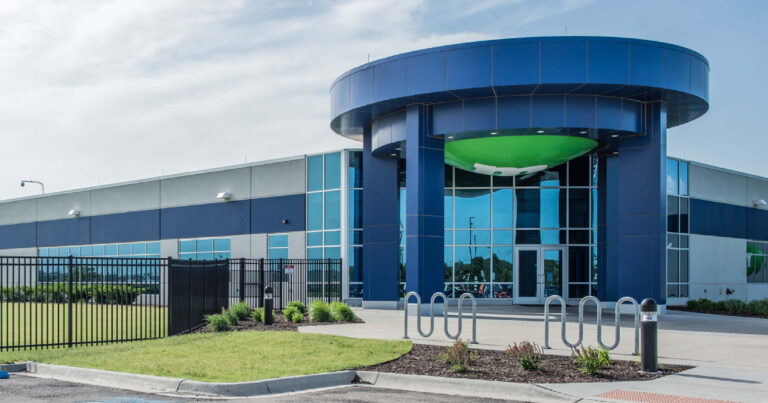By Elizabeth Walters
From Extra gum to Twix bars, Mars Wrigley is not only a household name in manufacturing but also a quintessential part of American culture. The candy manufacturer was nominated as a finalist in the Kansas Manufacturing Council (KMC)’s 2023 Coolest Thing Made in Kansas competition for its Topeka facility production of Peanut M&Ms.
At the time of construction, the Topeka location was the first Mars Wrigley Midwest site in 35 years. Brian Pardo, the plant’s site director, said the company was drawn to Kansas.
“We worked with the state and local leaders here and connected with the community, and it was a really good fit for us,” Pardo said. “There’s a good workforce here, I think — a talented workforce here.”
The Topeka facility’s value stream manager Clint Briske noted Kansas’ “premium” location was a draw for the manufacturer.
“We’re right in the middle of the Midwest, we’re right in the middle of the United States,” Briske said. “We have a strong interstate, which is I-70 that goes from the West Coast to the East Coast and I-35 that stretches all the way from the Gulf Coast to the Canadian border. It allows us to easily distribute all our iconic brands all over the United States.”
Annually producing roughly 50,000 tons of product, the Topeka site is considered a mid-sized plant in terms of candy manufacturing but a recent $175 million expansion project will promote the location to a “mega site” by the end of 2024. Pardo said the development, which will dub the Topeka facility one of the largest North American chocolate factories, will add Snickers, Milky Way, and 3 Musketeers to production, resulting in a forecasted 100,000 tons of yearly stock by 2025. Additionally, the endeavor will create more than 100 jobs for Kansans.
Briske represented the plant at KMC’s annual Manufacturing Summit in Wichita. He learned how at the event that few Kansans knew about Mars Wrigley’s manufacturing presence in the state.
“The biggest question I was asked at the summit was, ‘where are you guys located?’” Briske said. “And when I told them we were in Topeka, Kansas’s capital city, they had no idea.”
Briske said the competition gave him a better sense of the manufacturing industry’s importance to the state’s economy, noting that the trade makes up 16% of the Kansas GDP.
“In the glide path over the last ten or 12 years, manufacturing has been on this rise in the state of Kansas,” Briske said. “It continues to grow; the pandemic slowed it down a little bit, but even though it was slowed down, it still demonstrated some upward growth, and that glide path continued that upward trend.”
A Texas native, Briske said he has admired the Kansas work ethic ever since he started at the Topeka plant in July of 2021.
“I mean, you think about the environment here being in the Midwest and a lot of farm communities and just that, the natural tendency that goes along with farming, working from sunup to sundown, and just working until the work is done instead of punching a clock,” Briske said. “Kansans are willing to just work. They work hard.”



